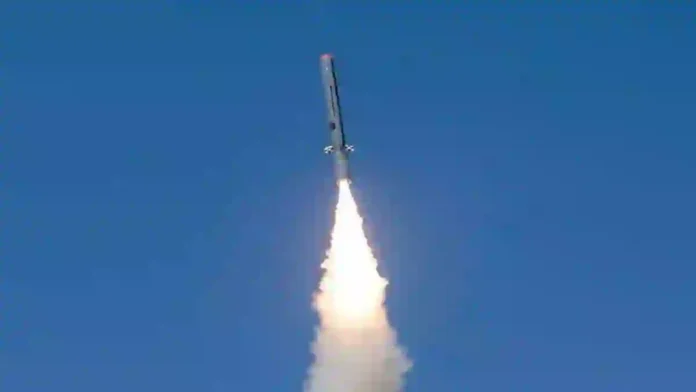India’s recent successful flight test of the Indigenous Technology Cruise Missile (ITCM) marks a significant achievement in the nation’s defence R&D capabilities. Conducted from the Integrated Test Range, this milestone underscores India’s commitment to advancing its indigenous defence capabilities.
The DRDO announced the successful test, highlighting the flawless performance of all subsystems during the trial. This accomplishment is a testament to the dedication and expertise of India’s scientific community, particularly the contributions from the DRDO laboratories and Indian industries involved in the project. With indigenous propulsion powering the missile, India now stands stronger in its self-reliance on defence technology. One of the key aspects of this successful test was the meticulous monitoring of the missile’s performance through a range of sensors deployed by the Integrated Test Range. This comprehensive monitoring ensured complete coverage of the missile’s flight path, showcasing India’s capabilities in integrated testing and evaluation processes.
Read- WHAT IS ASTRA MK-2 MISSILE WHICH DRDO IS PLANNING TO TEST
Moreover, the involvement of the Indian Air Force’s Sukhoi Su-30MKI aircraft in monitoring the flight demonstrates the synergy between different branches of India’s armed forces in advancing defence capabilities. Such collaboration is crucial for ensuring the effectiveness of defence systems in real-world scenarios. The successful flight test also highlighted the missile’s capability in waypoint navigation and very low-altitude sea-skimming flight, demonstrating its versatility and effectiveness in various operational scenarios.
These capabilities enhance India’s deterrence posture and strengthen its ability to safeguard its maritime interests. Furthermore, the successful demonstration of the indigenous propulsion system developed by the Gas Turbine Research Establishment in Bengaluru is a testament to India’s growing expertise in critical defence technologies. This achievement opens up avenues for collaboration and technology transfer in the global defence market. Most important is the collaboration of the Aeronautical Development Establishment in Bengaluru with other DRDO laboratories and Indian industries to develop ITCM. This collaborative approach underscores the importance of synergy among various stakeholders in realising complex defence projects. This test will serve as an inspiration for future endeavours in indigenous defence technology development.
This report is auto-generated from a syndicated feed




